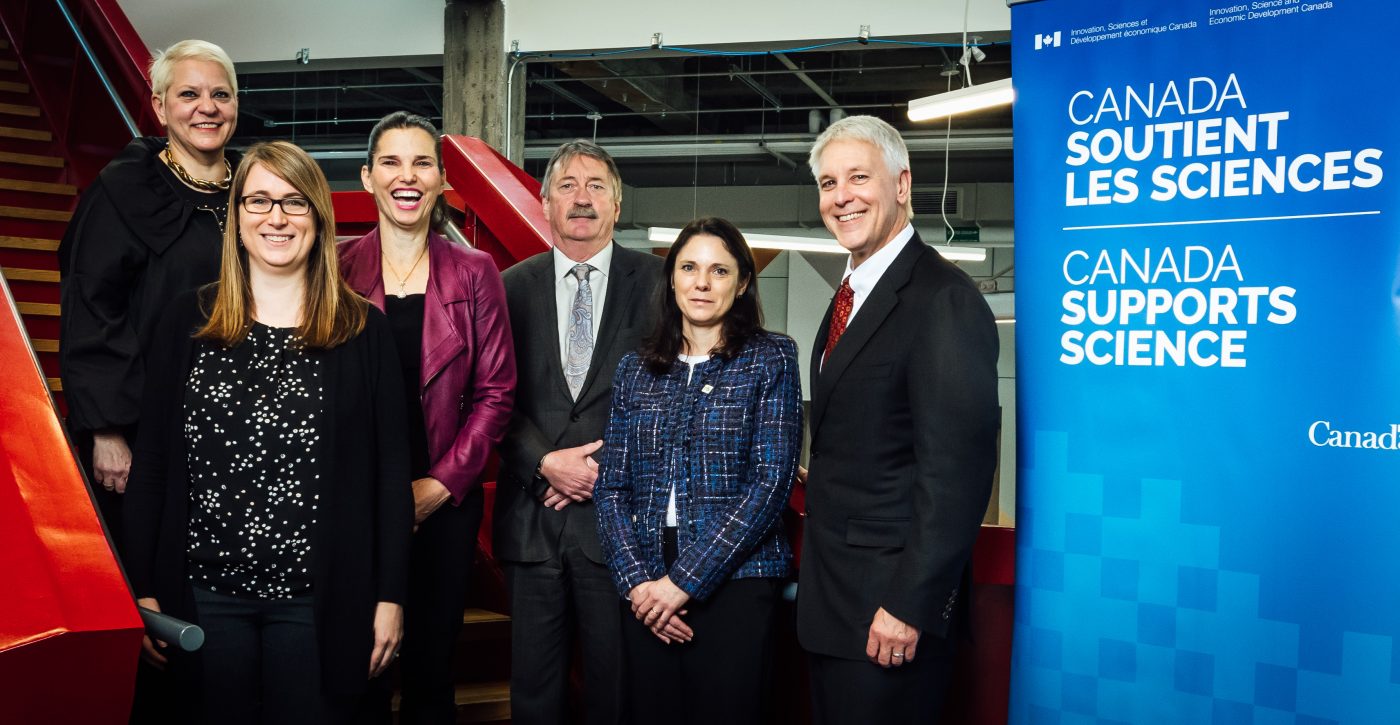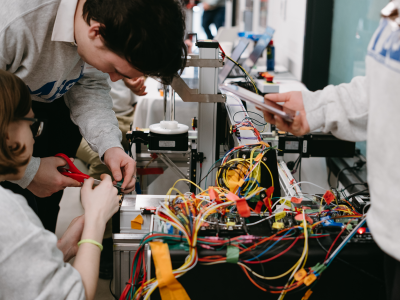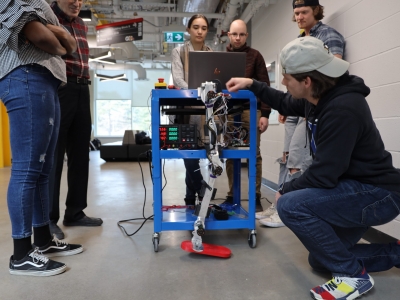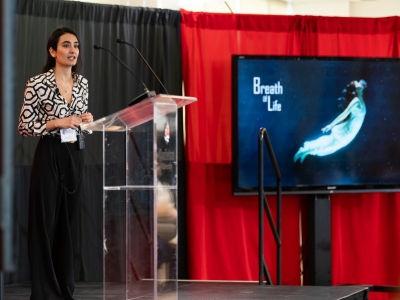By Joseph Mathieu
Photos courtesy of the Social Sciences and Humanities Research Council
Researchers, parliamentarians, and diplomats gathered in the mezzanine of Bayview Yards on Dec. 6, 2018 for the announcement of a new research fund that was enthusiastically endorsed by Carleton University.
Science Minister Kirsty Duncan unveiled the New Frontiers in Research Fund (NFRF), which will invest in “large-scale, transformational research, as well as international collaborations” that aim to improve communities, the environment and the economy in Canada.
Interdisciplinary and high-risk research will benefit from $275 million invested over the next five years through the NFRF, with an additional $65 million a year available after that.
“It’s going to create new possibilities of research and discovery in Canada,” said Duncan. “To our researchers and students, I can’t wait to see what you do next.
“We understand the nature of research is changing. It is increasingly multi-disciplinary, it crosses borders, it’s fast-paced. And as research changes, we must change with it.”

The fund was developed by the Canada Research Coordinating Committee (CRCC), created to improve the efforts of Canada’s three granting agencies — Social Sciences and Humanities Research Council (SSHRC), Natural Sciences and Engineering Research Council (NSERC), and Canadian Institutes of Health Research (CIHR) — and the Canada Foundation for Innovation.
“It’s really great to see a new approach to research funding that merges the three agencies,” said Audrey Girouard, associate professor at Carleton University’s School of Information Technology. “It will help research projects that are either on the cusp of one agency or overlap agencies.”
The Importance of Working Across Disciplines
Duncan said Girouard’s research into human-computer interactions that involves several kinds of expertise illustrates the importance of working across disciplines to discover, create and innovate.
Girouard said her work is interdisciplinary by nature and has applications in health care, accessibility, gaming and mobile devices. She leads the Collaborative Learning in Usability Experiences (CLUE) program, funded by an NSERC Collaborative Research and Training Experience grant. She is also director of the Creative Interactions Lab, which recently developed a password system for the visually impaired on a flexible smartphone.

Duncan acknowledged the anniversary of the École Polytechnic shotting on Dec. 6, 1989 and asked everyone to stand for a moment of silence.
“Today, we remember 14 young women tragically killed,” said Duncan. “We remember their families, and we recommit to ending gender-based violence.”
Nepean MP Chandra Arya said Duncan is a driving force in encouraging youth, particularly young women and Indigenous peoples, to pursue careers in the science, technology, engineering and math (STEM) fields.
New Frontiers in Research Fund Important
to Young Researchers
According to Girouard, the NFRF’s focus on young researchers is particularly important to help launch innovative projects and, ultimately, their careers.
“Overall, the New Frontiers in Research Fund should allow diverse research teams working together to help solve important research problems in Canada,” she said.
“We’ve been pushing for multidisciplinary collaboration for many years,” said Rafik Goubran, Carleton’s vice-president (Research and International). “Disciplines have to work together to solve real problems, addressing their science and engineering aspects, but at the same time looking at the impact on society, the potential economic development, and the impact on regulatory framework.”
Mike Tremblay, president and CEO of Invest Ottawa and Bayview Yards, welcomed the delegation to the tech hub. Bayview Yards is home to the Global Cybersecurity Resource, a business accelerator hosted by Carleton’s Technology Innovation Management (TIM) program.
“It’s not an accident that we have the highest density of tech workers in Canada,” said Tremblay. “We have very strong capability with post-secondary institutions. We have roughly 27,000 STEM students in this region, which is one in five STEM students in Canada.”
Last spring, Duncan tasked SSHRC President Ted Hewitt to lead a comprehensive national consultation. The committee worked with the Canadian research community to find out how the federal budget could meet their needs. Over the summer, 1,500 people added their thoughts, including more than 240 researchers and administrators from 47 universities and four colleges.
Increasing Support and Leadership in
Transformative Research Areas
“Canada is already home to world-class research for science and for scholarship,” said Hewitt. “But if our country is to excel in today’s world of relentless change and rapid innovations, it must increase its support and leadership in cutting-edge, transformative research areas.”
The 2018 federal budget included nearly $4 billion in research funding, touted as the single largest investment of its kind in Canada’s history.
“These are extraordinary times to be involved in research in Canada,” said Hewitt.
The NFRF will feature three streams of funding. The transformation stream will provide large-scale support for interdisciplinary and cutting-edge research; international will enhance research opportunities with global partners; and the exploration stream, which was launched at the announcement, will help early-career researchers realize innovative and big ideas.
The inaugural NFRF Exploration competition was to open Dec. 17. It will offer grants of up to $125,000 a year to at least 75 applicants starting March 29, 2019.
Hewitt said the CRCC wants to strengthen equity and diversity in research, increase the capacity of Indigenous communities to conduct research and partner with the broader research community, and improve support for the next generation of scientists and scholars.
“The projects funded over the next five years and beyond will transform the research enterprise across the country,” he said. “Of that I have absolutely no doubt.”
Tuesday, December 11, 2018 in Accessibility, Information Technology, Research, Women in Engineering & IT, Youth Outreach
Share: Twitter, Facebook



